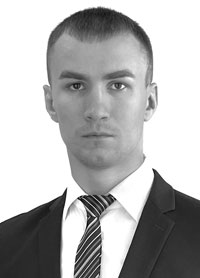FUNCTIONAL STATE MONITORING FOR SAMBO WRESTLERS IN ANNUAL TRAINING CYCLE
Keywords:
functional fitness, diagnostics, modular training schedule, sambo, annual training cycle, Simona 111, junior sambo wrestlers.Abstract
Objective of the study was to analyze benefits of the traditional and modular training systems using the sambo wrestlers’ functional fitness testing and management toolkit.
Methods and structure of the study. We used the following methods and instrumental test systems in the study: analysis of the relevant theoretical and practical literature; training experiment; mathematical statistical data processing toolkit; and functional fitness tests by computerized Simona 111 Integrated Test and Monitoring System. The study was run at Znezhinka Winter Sports Training Center and Judo and Sambo Sports Club in Tchaikovsky in March 2019 through February 2020 (annual training cycle). We sampled for the study the 18-23 year-old sambo elite (n=30) with Candidate Masters and Master of Sports qualifications and split them up into Control and Experimental Group of 15 people each.
Results and Conclusion. The functionality progress profiles obtained using Simona 111 Integrated Test and Monitoring System showed meaningful benefits of the Experimental Group training system scheduled on a modular basis versus the traditional Control Group system to make the Experimental Group highly fit for the major event – as verified by the actual competitive accomplishments of the Experimental Group in the top-ranking event of the season. This evidence gives us the grounds to recommend the modular training schedule for the junior elite athletes’ training systems.
References
Antonov A.A. Beznagruzochnaya otsenka funktsionalnogo sostoyaniya organizma sportsmenov [Loadless evaluation of functional state of athletes]. Poliklinika. 2013. No. 1-2. pp. 37–41.
Antonov A.A. Universalnaya tekhnologiya diagnostiki funktsionalnogo sostoyaniya organizma sportsmenov na osnove integralnykh pokazateley serdechno-sosudistoy sistemy [Universal technology for diagnosing athletes’ functional state based on integral indicators of cardiovascular system]. Vestnik vosstanovitelnoy meditsiny. 2017. No. 5 (81). pp. 38–44.
Zebzeev V.V. Sravnitelny analiz kharakteristik energoobespechennosti i funktsionalnykh vozmozhnostey dzyudoistov 16-18 let, predstavlyayushchikh raznye stilevye formy [Comparative analysis of characteristics of energy supply and functionality of judokas aged 16-18, representing different style forms]. Nauka i sovremennost. 2011. No. 10-1. pp. 206–210.
Maltsev G.S., Zekrin F.Kh., Zekrin A.F. Sovremennye tendentsii planirovaniya sportivnoy podgotovki v edinoborstvakh [Modern trends in martial arts training process planning]. Teoriya i praktika fiz. kultury. 2020. No. 3. pp. 12-14.
Maltsev G.S., Kozyreva A.P. Kontrol funktsionalnoy podgotovlennosti edinobortsev [Control of functional fitness of combatants]. Pedagogika v fizicheskoy kulture, sporte i khoreografii [Pedagogy in physical education, sports and choreography]. Proc. national with international participation research-practical conference. St. Petersburg: Lesgafta NSU publ., 2020. pp. 116–121.
Issurin V.B. Benefits and Limitations of Block Periodized Training Approaches to Athletes' Preparation: A Review. Sports Medicine. 2016. No 46 (3). р. 329–338.


